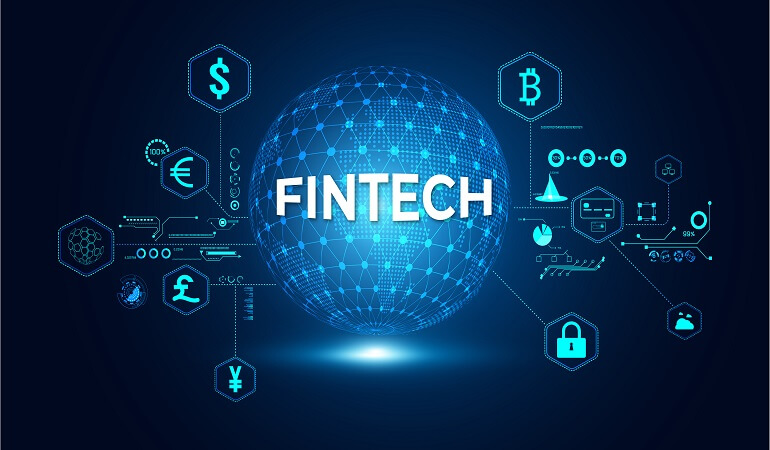
Financial technology (FinTech) describes new and advanced technology that aims to improve and automate the use and delivery of financial services. At its core, FinTech helps business owners, companies, and consumers better manage their financial processes and operations. Utilizing specialized algorithms and software on computers and smartphones, FinTech makes lives convenient and finances seamless.
The term emerged in the 21st century and was initially associated with the tech employed at the back-end systems of well-established financial institutions. However, with time, there has been a shift to more consumer-oriented services, and thus, there’s a more consumer-oriented definition.
FinTech also includes the use and development of trending cryptocurrencies such as bitcoin. FinTech is in the headlines primarily because of this segment; however, big money is still in its multi-trillion-dollar market capitalization and the traditional global banking industry.
Types of FinTech Applications
There are four types of FinTech apps:
- Digital Banking
- Consumer Finance
- Digital Payments
- Digital Investment
-
Digital Banking
Digital Banking involves automating traditional banking services. These apps enable a bank customer to access banking services and products through an online/electronic platform. Digital banking means substituting a bank’s physical presence by digitizing all banking operations with an everlasting online presence, thus eliminating the consumer’s need to visit a branch.
Almost every bank in Pakistan offers digital banking and has its own unique mobile application. Some microfinance banks, like JazzCash and Easypaisa, offer plenty of services through mobile applications.
-
Consumer Finance
Consumer Finance deals with the lending process between the consumer and a lender. In some cases, the lender can be a bank or any financial institution. In other instances, the lender can be a business offering in-house credit in exchange for the consumer’s business. Consumer finance includes any type of lending activity resulting in the extension of credit to a consumer.
Microfinance banks like Finja JazzCash, etc., are prime examples of consumer finance. Credit cards are another fascinating example. In Pakistan, a buy now and pay later policy is becoming quite popular. Many mobile services operate on this model.
-
Digital Payments
A digital payment, also known as an electronic payment, is the transfer of money from one payment account to another one using a digital device such as a computer, POS (Point of Sales), mobile phone, SWIFT (Society for the Worldwide Interbank Financial Telecommunication), or a digital channel communication such as mobile wireless data.
It includes payments made with mobile money, payment cards, including debit, prepaid, and credit cards, and bank transfers. For instance, the most popular digital payment apps are Payoneer and PayPal.
As regulations become more stringent, the adoption of RegTech tools is expected to surge. These tools often include features for transaction monitoring, ensuring that companies stay compliant while safeguarding their financial operations.
-
Digital Investment
A digital investment platform is a digital solution that blends automated business management and financial functions with the human touch when needed. It allows customers to save and invest money in investment funds, shares, stocks, and recurring investments to make more money out of their money.
Today, institutional and retail investors can invest in different types of assets in any jurisdiction and currency. One regional example of digital investment is Octa Fx. You can also invest in cryptocurrencies, oil, the stock market, etc.
FinTech applications are entering the market quickly. Since the State Bank of Punjab issued a license for digital banking, many new players have joined the league, including SadaPay, NayaPay, QisstPay, Tag, and Finja. Still, there is plenty of room for improvement in this market.
Cryptocurrencies are the next digital payment option that comes to mind. Crypto is a trillion-dollar industry linked to the Blockchain at the backend. Mobile apps for different cryptocurrencies, exchanges, and market listings are the new norms of this industry.
A well-thought-out payment strategy can make all the difference, ensuring that users have a seamless experience when navigating these new digital options.
Top FinTech Trends
FinTech has grown and changed over these years with the developments in the technology sector. Currently, there are different prevailing trends that define the growth of FinTech:
-
Blockchain
Blockchain technology allows decentralized transactions without the involvement of a government entity or other third-party organizations. Blockchain technology and apps have been growing rapidly for years, and the trend will continue in the coming years as more companies turn to advanced data encryption.
-
Artificial Intelligence and Machine Learning
AI and ML solutions have changed the way FinTech companies scale and redefined the services they offer to clients. AI and ML enhance the value provided to clients, detect fraud, and reduce operational costs. Therefore, as these technologies become more accessible and affordable, they will play a huge role in the continued evolution of FinTech, particularly as more brick-and-mortar banks go digital.
-
Growth Of Digital Banking
Digital banking is easier to access today than ever before. Many consumers already request and pay loans, pay insurance, and manage their money through digital-first banks. The convenience and simplicity will undoubtedly drive additional growth in this sector, and the global digital banking platform market will grow in the coming years.
The Technologies Empowering FinTech
Modern FinTech is mainly driven by Blockchain, Big Data, and Artificial Intelligence technology. All of these technologies have redefined how companies store, transfer, and protect digital currency. AI primarily provides valuable insights on businesses’ spending habits and consumer behavior, enabling them to better understand their customers.
Blockchain is a relatively newer technology within finance. It allows decentralized transactions without inputs from a third party, thus tapping a network of Blockchain participants to oversee potential additions or changes to encrypted data.
Advantages of FinTech
FinTech is offering a number of technological advancements and has thus leveled up the business arena. It has raised the bar by enabling all users to access all digital services. The services in the past were just available to some selected users, such as the rich class or those having a specific economic status.
However, data and technology made it less expensive and simpler to offer financial advice to the public. Consequently, something that was only available to a particular asset level in the past is now available to everyone.
To illustrate, certain advantages that empower the business of all levels include:
- Enhanced and improved customer service.
- There’s a financial advisor in your pocket for investment advice.
- It provides a streamlined and better financial system.
- You will have a better and a secure way of accessing.
- Infrastructural support.
- Less expensive and speedy payment processes.
- Industries can pace up with a transparent system.
How Can Xavor Help?
There are numerous applications for FinTech users. It is a vast field, from microfinance to digital lending, and Xavor helps you operate in any field. With the help of Blockchain at the backend, we can create a smart, secure, and efficient system in FinTech for you. We also provide services to different companies around the globe in their FinTech product.
Our mobile app development services include:
- UI/UX Design Services
- App Development (Android & iOS)
- Integration of any 3rd party payment gateway
- Automated QA & Testing Services
- Uploading & Managing Apps on the App Store
- Enterprise iOS app store management
- Maintenance & Support
Contact us at [email protected] today and avail top-class FinTech services from the industry experts and professionals for your business.
